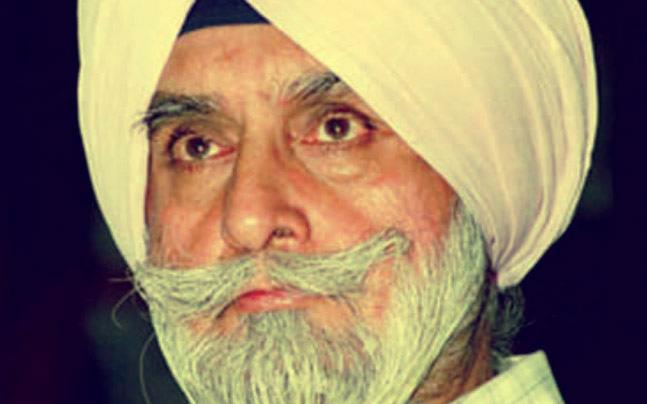With yesterday’s incident of Pro Khalistan sloganeering on the anniversary of Blue star operations and demise of KPS Gill recently, its imperative to appreciate what the man stood for and how he represented the best counter terrorism operations in India by police.
The reason why the KPS Gill ’s stellar record in counter terrorism is worth a revisit is because even after 20 years of him helping to remove the scourge of terrorism in Punjab , the problem still persists in India and have grown in multitude.
While there is an appreciable decline in terrorist attacks inside India since the current government took charge, KPS Gills doctrine in handling terrorist operations continue to hold many important lessons for India as well as states struggling with anti -national / separatist elements .
Here are few key lessons that are worth revisiting by policy makers
1). Snatching away the high ground : Bhinderwaala and his ilk had this rustic romanticism about them which was a big reason for youth to sway towards his pipedream of Khalistan . Idealistic , honorable, virtuous and brave was the perception which made thousands follow him and pick up arms against Indian government. His death in Operation Blue star completed this Hero image and managed to give a high ground to Khalistan movement. Terrorists became actual hero and establishment became villain.
KPS gill managed to read this positioning right and decided to turn this equation on its head by recruiting young adults from families whose family members were killed or harassed by terrorists. Victims were empowered and a fierce combat unit Punjab Police Commando was formed . It was now oppressed vs. oppressor, victim family vs.cruel terrorists. The fight became personal, the retribution became the actual trophy for PP commandos. Villagers started relating to those who were fighting for establishment too.
The high ground started to vanish in thin air and masses started to see terrorists as what they truly were. Moral high ground is what is integral to any big multinational terrorist organization and Islamic terrorism especially thrives on it. The policy makers should find ways like KPS Gill to dislodge these organizations from their lofty perches.
2). Blocking fresh recruitment: Terrorism had hit the economy of the state real hard. There was massive unemployment which in a way was making it easy for terrorist organizations to recruit. KPS Gill in a deft move initiated massive recruitment drive in police. The strength of the Punjab Police went up from 35,000 in 1988 to 60,000 in 1993 even as the number of paramilitary companies came down from 400 to 260.
Additionally KPS Gill introduced the scheme of Special Police Officers in the state, through which a large number of mazhabi (Scheduled Caste) Sikhs found employment at Rs 35 a day. They were provided with guns and given the licence to kill. It effectively neutralized the incentive in joining the militant groups.
Generating employment and stemming the flow of new recruits to terrorist organizations was indeed a masterstroke by the Supercop.
3). Backing his boys to the hilt: It was evident that KPS Gill watched the back of his boys to the fullest. Numerous cases of human right violations were filed against Punjab police for their alleged autocracies against suspected terrorists and their families but no action was taken by Punjab police.
KPS Gill was not one to be weighed down by law or morality and make his men fight the militants with one arm tied behind the back. Brutality was to be answered with brutality. Since the militants had written the rules of the game, it was only fitting that the police played by them as well. He turned a deaf ear to allegations of excesses. This emboldened the police and they increasingly turned fearless in their pursuits. High moral of frontline soldiers is imperative against a strong enemy.
4). Rewarding the kills : KPS Gill holds the unique distinction of making bounty hunters of policemen under his regime. Through a special central funded activity , every kill of a known militant used to carry a reward of approx. Rs 50000.
In an article in India Today on 15 October 1992 it was written that “the rush of claiming cash rewards is turning police into mercenaries. Besides the rewards for killing militants (annual outlay for the purpose: Rs 1.13 crore, the department gives ‘unannounced rewards’ for killing unlisted militants“
5). Raising the price of joining the separatist cost: A la approach of Israel , KPS gill was a firm believer of ensuring that terrorists should be aware about the huge price that they would pay for their actions. Reportedly he just not used to hunt the terrorists but their entire families used to get rounded up . The impending hardships of family in the hands of police , police brutality , disappearance of family members etc. used to stalk the mind of militants after Gill took charge.
In 1993, The New York Times reported, the people of Punjab no longer feared the Sikh “rebels or gangs”, but instead feared the army and police. Patricia Gossman describes Gill as having a “goal to eliminate, not merely arrest, militant Sikh leaders and members.”
Whatever be the intent of KPS Gill, if there was a way to take the fight to the opposition camp then his methods exactly ensured that.
Its ironical that having crushed terrorism so successfully, India still continue to struggle against it in its border areas. While every battle is not same, the golden rules of combat do not change.
